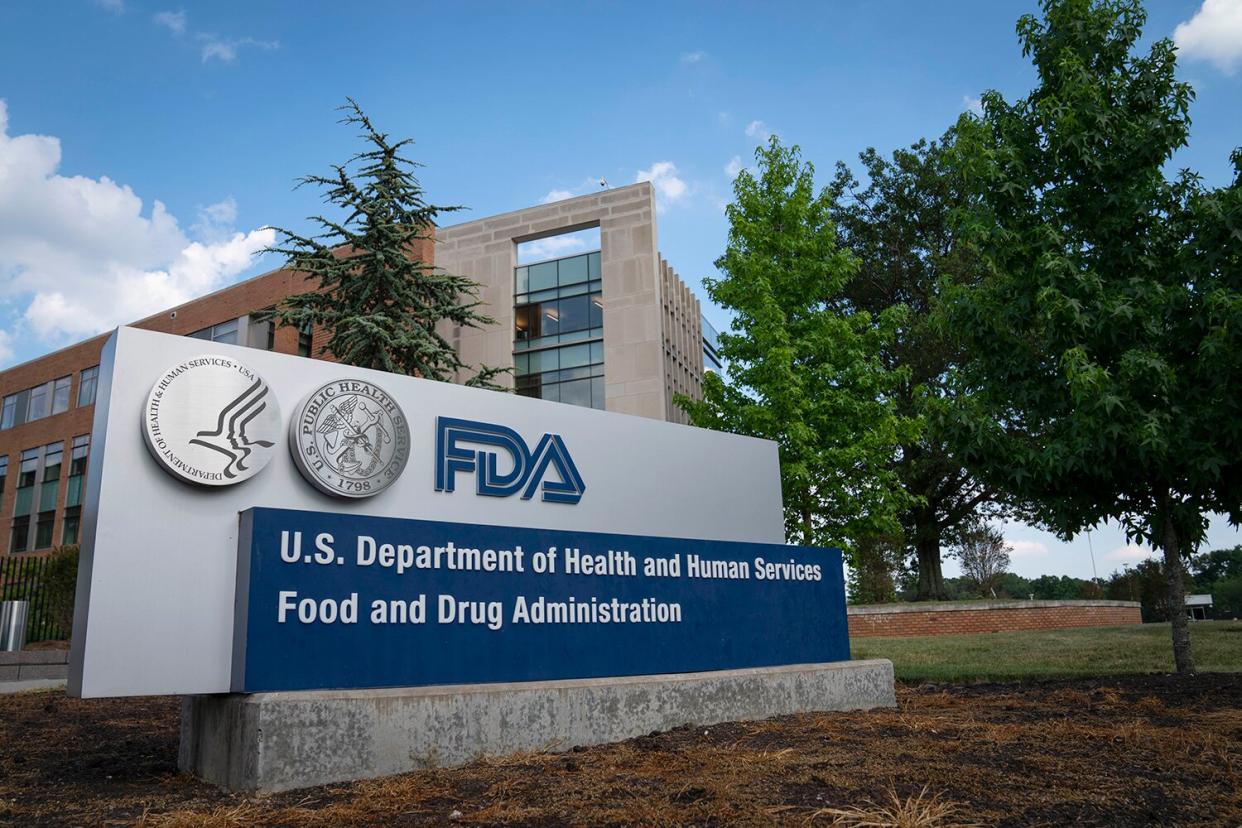FDA Approves Alzheimer's Drug That Promises to Slow Cognitive Decline Early in the Disease

Sarah Silbiger/Getty
The Food and Drug Administration has approved the Alzheimer's drug lecanemab — which will be sold under the name Leqembi — on Friday.
The treatment, developed by Biogen and Japanese pharmaceutical company Eisai, was granted accelerated approval after clinical trial results published in November indicated that it moderately slowed cognitive decline in people with mild impairment due to early Alzheimer's.
"Alzheimer's disease immeasurably incapacitates the lives of those who suffer from it and has devastating effects on their loved ones," Billy Dunn, director of the Office of Neuroscience in the FDA's Center for Drug Evaluation and Research, said in an FDA release. "This treatment option is the latest therapy to target and affect the underlying disease process of Alzheimer's, instead of only treating the symptoms of the disease."
RELATED: 53-Year-Old Father of 3 Has Alzheimer's — and Travels with His Family to Inspire Others
Both Biogen and Eisai applied for accelerated approval in July — which allows for the FDA to quickly bring the drug to market if it is expected to help patients better than what's currently available. Trial results published in the New England Journal of Medicine in November found cognitive decline to be 27% slower over the span of 18 months for those who took it, compared to those who did not.
Today represents continued progress in Biogen and @EisaiUS’s commitment to Alzheimer’s patients. Click here to get the latest update and learn more about the U.S. FDA’s approval:
— Biogen (@biogen) January 6, 2023
The approval is somewhat controversial, since lecanemab was found to have some adverse effects, including risks of swelling and bleeding in the brain.
As CNBC points out, 13% of those who received lecanemab developed brain swelling, as opposed to 2% in those that did not receive the treatment — although most cases were mild to moderate. Additionally, 3% of those who were treated had more serious brain swelling, while 17% had brain bleeding, as opposed to 9% in the group that wasn't treated. In total, 14% of those who used lecanemab "suffered serious adverse events" in the trial, per CNBC, as opposed to 11% in those who didn't have the treatment.
Never miss a story — sign up for PEOPLE's free daily newsletter to stay up-to-date on the best of what PEOPLE has to offer, from juicy celebrity news to compelling human interest stories.
Eisai, which produced the first symptomatic treatment for the disease over two decades ago, hasn't yet shared the drug's price, although some are projecting it to be around the mid-$20,000 range for a year, per STAT News.
"The approval of LEQEMBI provides new hope to patients with Alzheimer's disease. Patients at an early stage of the disease and their caregivers can now consider a new treatment option with their doctors," Christopher A. Viehbacher, president and CEO of Biogen, wrote in a release.
"Our focus now is on the path forward, working alongside Eisai with the goal of making LEQEMBI available to patients who may benefit from this treatment as soon as possible. This approval is also a recognition of the many scientists and doctors who have, over many years, patiently and persistently worked to find a treatment for this highly complex disease."
RELATED: Alzheimer's Patients and Their Caregivers Find Solace and Socialization in 'Memory Cafes'
Haruo Naito, CEO of Eisai, called the approval "an important milestone in Eisai's four decades of research in Alzheimer's disease."
"The challenges of Alzheimer's disease reach beyond medical implications for patients and considerations for their families, but also impact society as a whole through reduced productivity, elevated social costs and anxiety. Upon receiving this Accelerated Approval, we will focus on providing important information on proper usage of LEQEMBI to healthcare professionals. Eisai will also engage with various payers to provide access to LEQEMBI, offer a patient support program, and will do its utmost to complete submission for traditional approval as soon as possible to serve more people living with early Alzheimer's disease."

